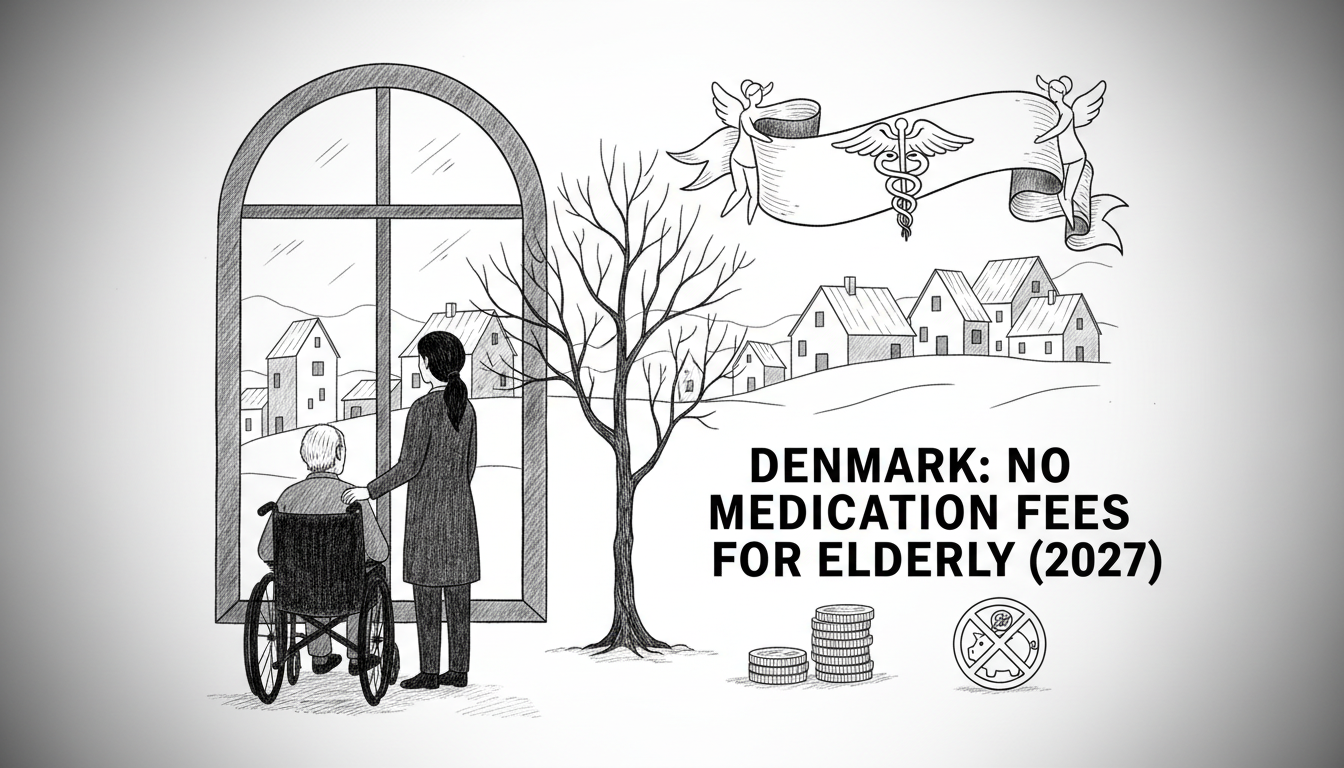Denmark will remove out-of-pocket medication costs for elderly residents in new healthcare facilities starting in early 2027. The national government and regional authorities reached this agreement to eliminate financial barriers for vulnerable seniors.
Health Minister Sophie Løhde announced the policy change in a recent statement. She explained that recovering patients should focus on getting better rather than worrying about medical bills. The reform applies to new health and care facilities replacing current temporary municipal placements.
These transitional care spaces serve elderly patients discharged from hospitals but still needing more support than home care can provide. Currently, municipalities charge residents for medication and other services during temporary stays. Some seniors face bills reaching thousands of Danish kroner during their recovery periods.
The financial burden has drawn criticism from senior advocacy organizations like Ældre Sagen. They argue that medication costs create unnecessary stress for elderly people on fixed incomes. Many seniors struggle to cover housing expenses while simultaneously paying for essential medications during temporary care stays.
Minister Løhde acknowledged these concerns drove the policy change. She stated that eliminating medication fees will provide both peace of mind and greater health equity. The government listened to criticism about the current payment system creating financial hardship.
This medication cost elimination forms part of broader healthcare reforms initiated in 2024. The restructured system will transfer responsibility for these facilities from municipalities to regional health authorities. Regional governments will manage treatment and care services at the new health and care locations.
The changes also remove user payments for meals and other services beginning January 2027. All Danish municipalities must establish these new healthcare facilities under the reformed system. The policy aims to standardize care quality and accessibility across different regions.
This represents a significant shift in Denmark's approach to elderly care financing. The country maintains universal healthcare through tax funding, but temporary care facilities have historically involved out-of-pocket costs. The new approach aligns transitional care with Denmark's broader commitment to accessible healthcare.
International observers note Denmark continues refining its renowned welfare model. The medication fee removal addresses growing concerns about elderly poverty and healthcare accessibility. As populations age across Nordic countries, such policy adjustments may influence similar reforms elsewhere.
The timing coincides with broader European discussions about sustainable elderly care. Denmark's experiment with fully publicly funded transitional care could provide valuable lessons for other nations facing similar demographic challenges. The success of this approach will likely depend on careful implementation and adequate regional funding.
Elderly advocates welcome the change but caution about implementation details. The transition from municipal to regional management requires careful coordination to maintain service quality. Patients and families will watch closely to ensure the new system delivers on its promises of improved care and reduced financial stress.

